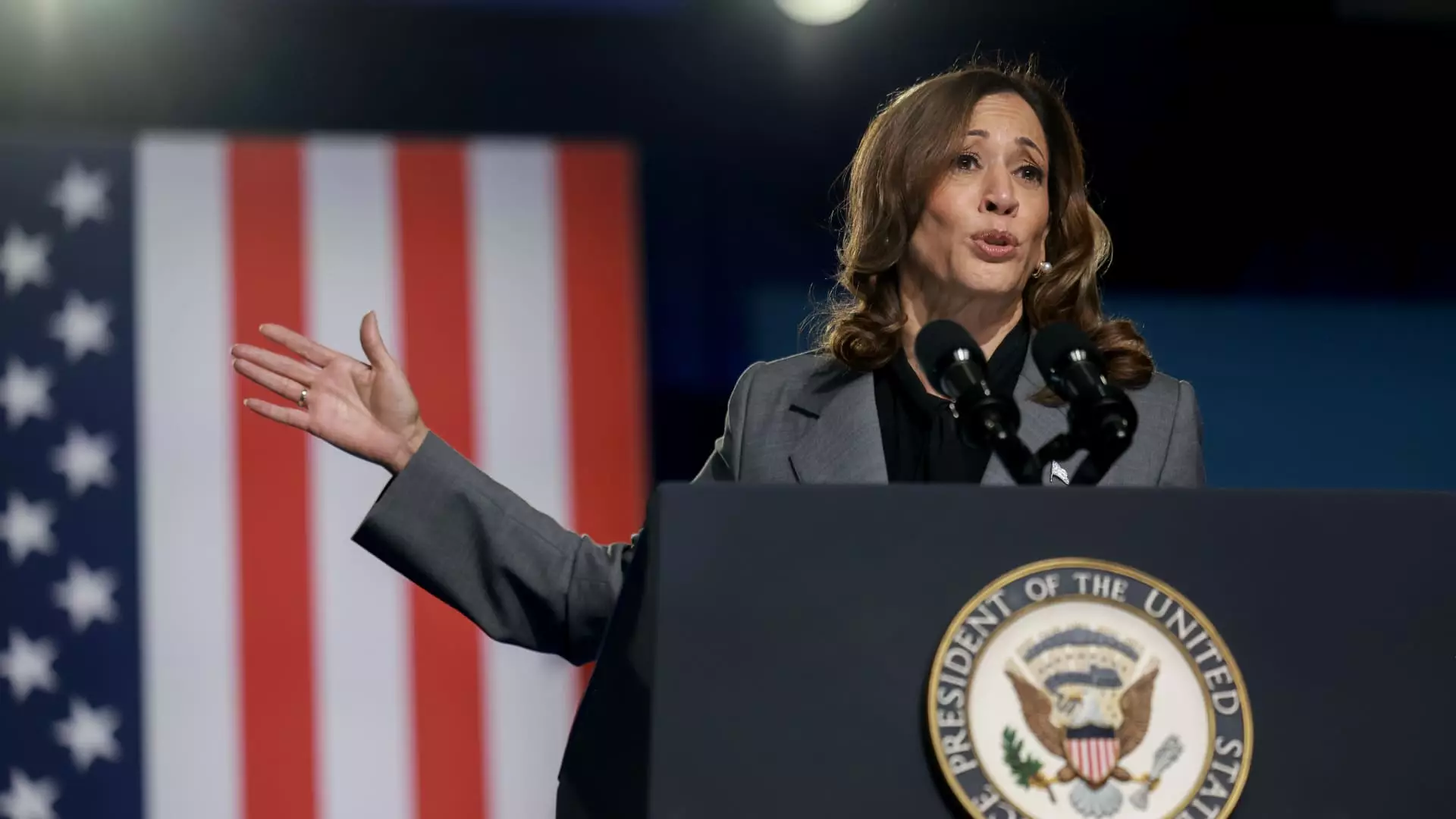In a surprising announcement during a recent event, Vice President Kamala Harris expressed her willingness to engage in a second debate with former President Donald Trump, set for October 23. This announcement comes amidst the mounting tension as the November presidential election approaches. Harris’s team, headed by campaign chair Jen O’Malley Dillon, has confirmed that they have accepted CNN’s challenge for the debate, framing it as both an opportunity for clarity in the electoral debate and a chance to challenge Trump directly on pressing issues facing the nation.
Harris’s declaration was made through a post on X, where she not only confirmed her participation but explicitly invited Trump to join her on stage. The gesture reflects both a confidence in her platform and a strategic move to position herself prominently as the Democratic candidate. Harris’s eagerness for an additional debate underscores the intensity of the political atmosphere leading up to the election, where candidates must not only convey their policies but also differentiate themselves in a crowded field.
Trump’s Reluctance and Tactical Retreat
However, the response from Trump and his campaign has been less enthusiastic. The former president, addressing supporters at a rally, dismissed the idea of a third debate, citing timing as a factor. According to Trump, the window for additional debates has closed, stating, “I’ve done two. It’s too late to do another. The voting is cast.” This reluctance to engage again could be interpreted in multiple ways—it may suggest a calculated strategy to avoid risk and preserve his current standing in the polls, or it might reflect a sense of complacency bolstered by his previous debate performances.
The divide in perspectives regarding debate participation highlights the multifaceted nature of political campaigning. While Harris seeks to engage and challenge, Trump appears to prioritize the solidity of his support. In a political landscape characterized by soundbites and moments of impact, the decision to participate (or not) can shape voter sentiment significantly, as debates are critical platforms for candidates to reach undecided voters.
The Broader Implications for Both Campaigns
As the election nears, the implications of these interactions extend beyond mere debate formats. The Democratic National Convention showcased Harris’s strengths and elevated her profile within the party, leading to her express willingness to take on challenging opponents. The internal concerns among Democratic donors regarding President Biden’s performance have created an environment where Harris’s assertiveness may rally support for her candidacy.
Conversely, Trump’s refusal to engage further could alienate some voters looking for accountability and transparency in political discourse. It also opens the door for narratives from the Harris campaign that portray Trump as avoiding necessary discussions, potentially swaying undecided voters who value open dialogue.
As the political landscape remains volatile, the upcoming weeks will be crucial for both campaigns. Harris’s invitation to Trump for a second debate exemplifies her readiness to tackle major issues head-on while asserting her candidacy’s legitimacy. Meanwhile, Trump’s stance, rooted in a sense of preservation and strategy, presents a different approach, raising questions about his engagement with voters. Ultimately, the electorate will determine the outcome, but the debates will serve as a vital crossroads for both candidates, illustrating their diverse methods of connecting with American voters during a pivotal election season.

